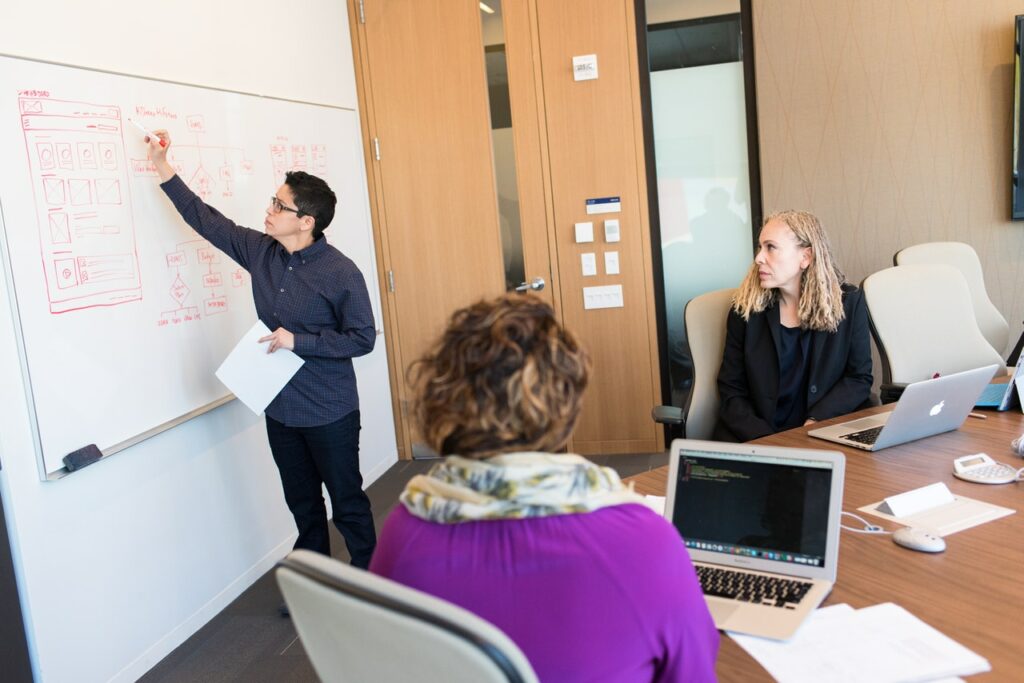Team meetings have become an essential component of the workplace. You can help your team develop ideas, find solutions to issues, and accomplish goals by properly planning and managing them. This article provides the information you get to maximize the value of your group meeting.
When essential tasks are discussed in productive team meetings, there is always a danger of cyberthreat for a team meeting, for that one should always use a VPN extension such as VeePN Firefox as a fast security VPN.
1. Set a clear goal
It is only used in getting around if there is a defined goal or objective for the gathering. What do you want to accomplish? Do you desire a problem’s resolution? Make a schedule? Describe a problem. Think of an idea? When scheduling a meeting, ensure you can identify a crystal-clear takeaway. When possible? Plan it.
2. Connect with each person in the group

What takes place in your staff meetings? Is the schedule shared? The team’s leader or manager delivers that meeting’s agenda as the team members lean their heads back and pay little attention to what’s being said. Sessions are intended for face-to-face conversation, not data transfer.
To ensure that everybody is informed and involved in the discussions during meetings, you may share the information with the group beforehand. Every person at the conference will feel connected, which will encourage brainstorming. Additionally, this will conserve time and ensure everybody is on one page.
3. Assign responsibilities in meetings
To lead an effective meeting, there’s frequently much to do: jot down, stick to the schedule, and ensure everyone is addressed. Group meeting responsibilities are an excellent method to assign these duties to various team members, ensuring that the meeting goes well and imparting leadership skills to your staff. The speaker, the writer, the recorder, as well as the devil’s advocate, are the 4 most crucial responsibilities.
4. Control the irrational
What has the potential to derail your meeting? Unnecessary subjects and digressions that are unrelated to the event’s purpose. Is it essential to discuss the client’s last names wrong now?
5. Boost the excitement

Meeting and amusement? Do you enjoy the pairing? Yes, by engaging in enjoyable team-building activities, you can bring some enthusiasm and fun to the meetings. The crew will be delighted when the fun is introduced during a conference, and they’ll look eagerly to them going ahead.
6. Seek advice from your team
Get input from everyone on your team when drafting the meeting schedule. They could organize brainstorming sessions or develop concepts. Or they may want to invest time in studying something that will help them advance in their position.
7. Put this restriction in place: No screens
Everybody at a meeting has to be attentive and involved for it to be successful. That is not conceivable if everyone in the room is glued to their devices, checking emails or browsing through Facebook.
Ask your participants to keep their gadgets at their workstations unless they are required for the debate or any other tasks you have scheduled.
8. Have the meeting productive

After going through your tactics with the group, what comes next? Let each group member briefly present their ambitious targets at the meeting’s conclusion. They will receive a summary from this, and you’ll learn what material they have remembered. Each meeting’s supervisors may additionally ask specific questions, such as:
What duties must be completed in the upcoming week?
“What fresh tactics have you picked up from this conference?”
By asking these straightforward questions to close your session, you can ensure that roles and deadlines are understood.
9. Observe the time
To begin with, you must start and complete your meeting punctually. It not only demonstrates consideration for everyone’s schedules, but it also ensures that you’ll maximize the time you have. Consider this: assuming you arrive 5 minutes behind for a conference that lasts for a ½, you have already lost 17% of the scheduled time. Yikes!
But once the chat starts, it’s simple to lose control of the seconds after your scheduled start and finish times. Even if having timings on your schedule is helpful, you still need to keep an eye on the time and follow your strategy.
10. Provide the meeting report in writing
Someone must record all meetings, compile the key points, and send notes. People may then review the conclusions that were reached, the adjustments they have to make to their job, and any other important information. This is very helpful for people prone to dozing off during conferences. Now that everything is collected, they can review what they overlooked.
